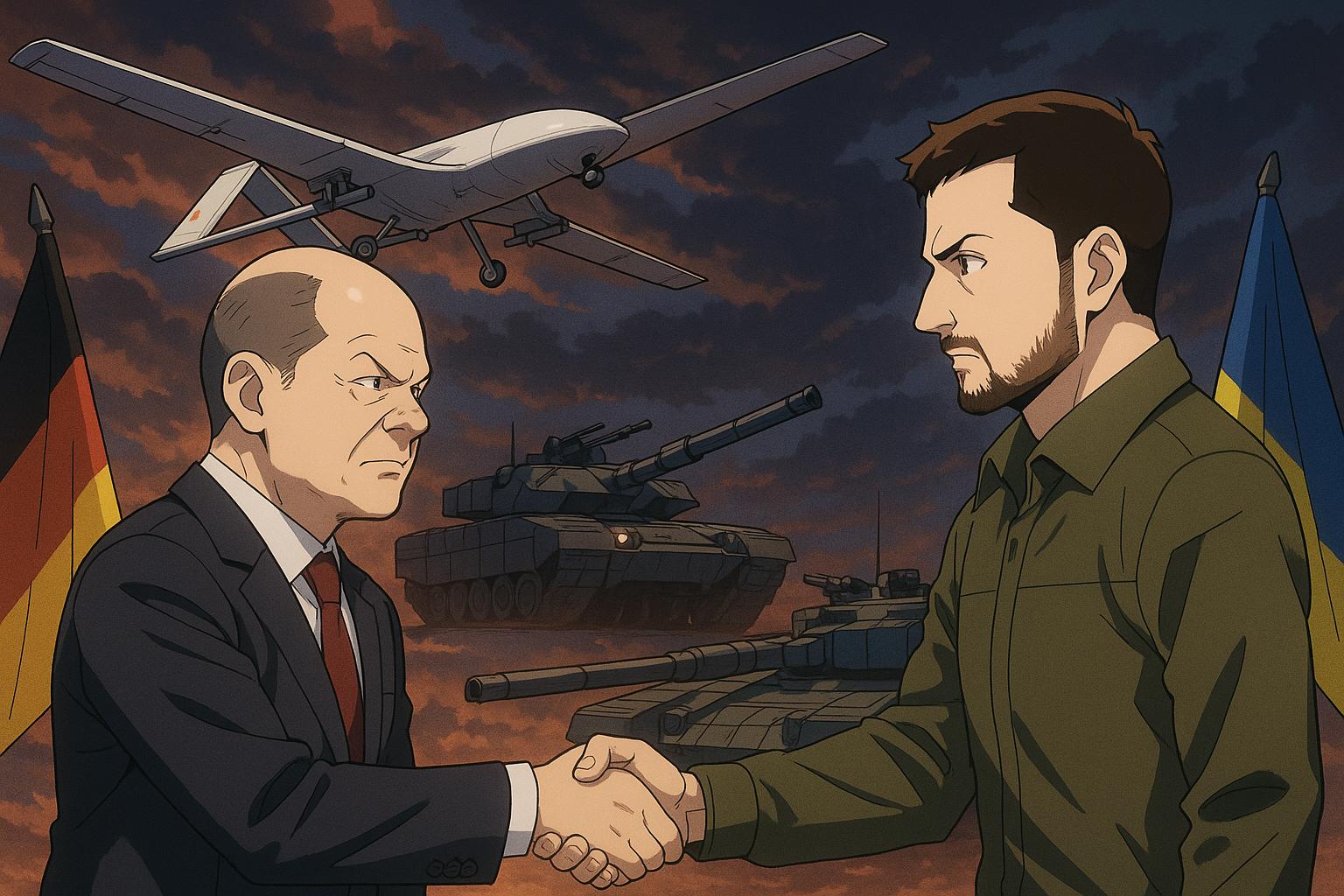Russia has expressed vehement disapproval following Germany's announcement of a substantial military aid package aimed at bolstering Ukraine's defence capabilities. The agreement, unveiled in Berlin, amounts to €5 billion (£4 billion) and includes significant investments in Ukraine's arms industry alongside a broader collaboration between German and Ukrainian manufacturers. This initiative follows a meeting between German Chancellor Merz and Ukrainian President Volodymyr Zelensky, highlighting an escalating commitment from Berlin to support Kyiv amidst ongoing conflict.
The package features various significant weaponry, including an enhanced production of long-range weapons systems within Ukraine, with the German Defence Ministry projecting that many of these systems will be operational by the end of 2025. As noted by the German publication Die Welt, approximately €400 million (£335 million) is earmarked for the development of advanced Ukrainian drones, specifically the BARS and AN-196 models, as well as Flamingo drone interceptors.
In response to this military collaboration, Russian Foreign Secretary Sergey Lavrov condemned the agreement, asserting that Germany is becoming increasingly embroiled in the conflict. “Germany is being directly drawn into this war," he stated, warning that the nation risks repeating the historical errors of previous conflicts, which he believes led to calamity in the past. Lavrov's remarks reflect a broader concern within Russia regarding NATO nations' military support to Ukraine, which is perceived as an act of aggression rather than a defensive posture.
This latest package is part of a larger trend in which Germany has increased military aid to Ukraine, with a commitment that has included previous announcements of €2.7 billion and a myriad of weaponry and armoured vehicles. According to reports, these earlier packages included Marder infantry fighting vehicles, Leopard tanks, and multiple air defence systems aimed at improving Ukraine's military infrastructure. The consistency in Germany’s military support highlights its strategic shift towards more active engagement in defending Ukraine against Russian advances.
While Germany remains cautious in its approach, particularly regarding the provision of certain advanced weapon systems such as Taurus cruise missiles, critiques have emerged from various quarters. Leaked conversations suggest that there is potential for Ukrainian forces to be trained to utilise these missiles without direct German military presence, raising questions about the government's hesitance and its implications for international military strategy.
Moreover, the discussion surrounding military aid is not isolated, as Germany continues to provide additional support, including a recent €1 billion package designed to prepare Ukraine for the winter months. This winter package promises further enhancements to Ukraine's defence, encompassing additional Patriot and IRIS-T air defence systems alongside fortified ground support assets.
As tensions escalate between NATO member states and Russia, the international community is closely monitoring Germany's evolving role. The balance between supporting Ukraine effectively and avoiding an escalation into direct conflict remains a critical consideration for Berlin as it navigates geopolitical pressures in the region.
With military aid commitments now becoming a standard part of diplomatic relations in this ongoing conflict, the regional stability hinges on the response of involved parties, particularly as rhetoric heats up and accusations fly regarding military involvement and sovereignty. The implications of these developments will likely resonate well beyond the immediate conflict, shaping future interactions on the international stage.
Reference Map:
- Paragraph 1 – [1], [2]
- Paragraph 2 – [1], [4]
- Paragraph 3 – [1], [3], [6]
- Paragraph 4 – [5], [7]
- Paragraph 5 – [2], [3]
- Paragraph 6 – [4], [5]
Source: Noah Wire Services
